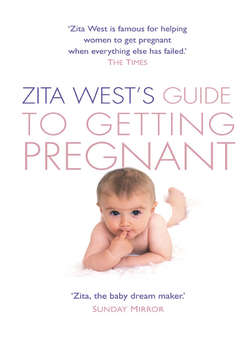Читать книгу Zita West’s Guide to Getting Pregnant - Zita WEST, Zita West - Страница 9
A Holistic Approach
ОглавлениеMany couples find my approach to be very different from a consultation with their GP or a fertility clinic. The physical checks they give to patients’ reproductive organs, systems and processes are, of course, invaluable, but there is often more to it than this. I take a holistic approach, taking into account the social, emotional and lifestyle context of the couple as well as the pure mechanics of reproduction. The pre-consultation questionnaire provides me with an invaluable tool for assessing this wide range of issues, and also helps many couples to think about their lifestyle and their true aspirations.
Prior to the first consultation, couples who come to my clinic are given a detailed questionnaire, one for women and one for men. This covers:
• the main reason they are seeking a consultation
• fertility history
• contraceptive history
• sexual history
• sexual issues
• general medical history
• family history
• diet and exercise diary
• blood sugar profile
• digestion and elimination profile
• immune profile
• pollution profile
• vitamin and mineral status
• food allergy profile
• details about other hormonal-related conditions that may exist
These questionnaires are long and detailed, to provide, in conjunction with consultation, a full profile on which decisions about the way a couple can choose to proceed can be based.
The questionnaire helps pinpoint areas that may be affecting fertility: factors to do with nutrition and exercise are often highlighted. These may be associated with emotional or lifestyle issues. In this way I try to help couples focus on their situation, so that together we can work out a plan of action. After the initial assessment, we consider what tests, treatments or therapies might be necessary along with the steps a couple need to take for themselves to make conception more possible.
For example, a couple may use cocaine at weekends to relax and chill out. That is their choice, and it is essential that they do relax, but the effects are very serious and if they want to conceive a baby they must stop. I try and keep things very simple, with explanations – as you will see in this book – about why change may be necessary. In this way I encourage couples to take responsibility for their own fertility.
It’s self-evident that, if you want to improve your likelihood of achieving a successful pregnancy, you have to be willing to make changes. There is often an instinctive reaction against change, but, in truth, the necessary changes are likely to be in areas of your life that you recognize are causing you stress and difficulty. Getting things into perspective for pregnancy is likely to result in a much more balanced, well-managed and satisfactory lifestyle all round – but you need support, advice and encouragement to make this happen.
I see many couples who have already taken steps for themselves along these lines, but this often takes the form of a random blitz of nutritional supplements, complementary therapies, weight-loss regimes, high-protein diets, etc. undertaken without any real knowledge of how these measures will affect their ability to get pregnant. Inevitably, some of these efforts can be unhelpful or even counter-productive.
This problem is not helped by the fragmented nature of available advice. Medical specialists, including obstetricians and gynaecologists, may be engrossed in the mechanics of conception but have little awareness of the patient’s emotional or personal situation. Complementary practitioners may have a more holistic view, but are unlikely to be fertility specialists with the appropriate technical knowledge. And nothing in the plethora of highly focused and specialist diets on the shelves of your local bookshop is likely to have been devised with the vital nutritional needs and sensitivities of pregnancy in mind.
